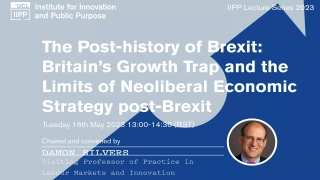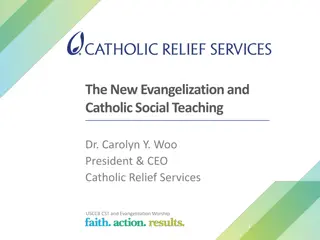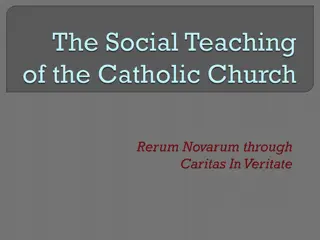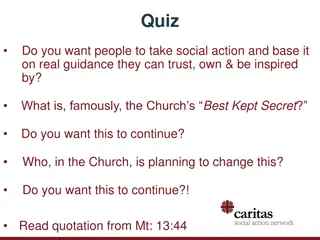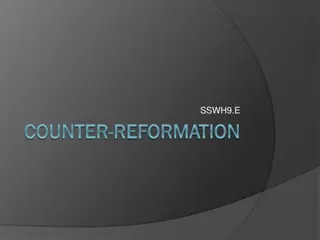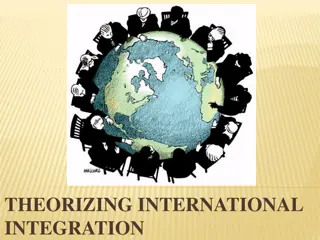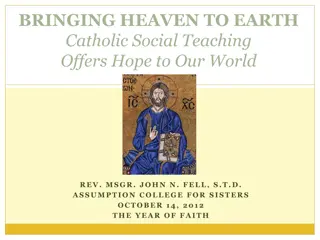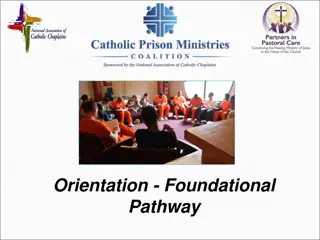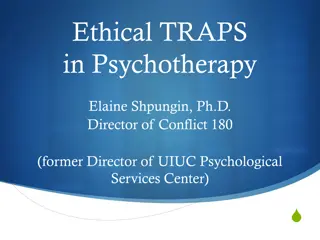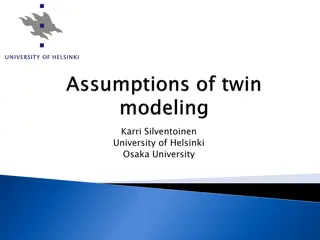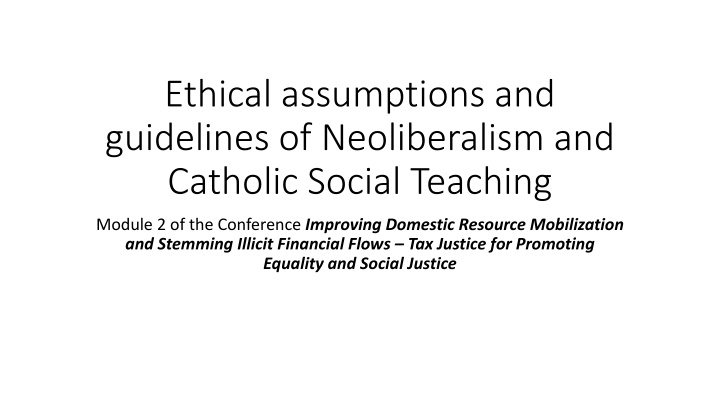
Ethical Assumptions and Guidelines of Neoliberalism vs. Catholic Social Teaching
Neoliberalism and Catholic Social Teaching present contrasting ethical foundations in areas such as individualism, market regulation, social responsibility, and labor practices. While Neoliberalism prioritizes free markets and profit maximization, Catholic Social Teaching emphasizes social justice, solidarity, and ecological sustainability.
Download Presentation

Please find below an Image/Link to download the presentation.
The content on the website is provided AS IS for your information and personal use only. It may not be sold, licensed, or shared on other websites without obtaining consent from the author. If you encounter any issues during the download, it is possible that the publisher has removed the file from their server.
You are allowed to download the files provided on this website for personal or commercial use, subject to the condition that they are used lawfully. All files are the property of their respective owners.
The content on the website is provided AS IS for your information and personal use only. It may not be sold, licensed, or shared on other websites without obtaining consent from the author.
E N D
Presentation Transcript
Ethical assumptions and guidelines of Neoliberalism and Catholic Social Teaching Module 2 of the Conference Improving Domestic Resource Mobilization and Stemming Illicit Financial Flows Tax Justice for Promoting Equality and Social Justice
Neoliberally inspired order Catholic Social Teaching -inspired order Free Markets (incl. non-prized externalities, privatized gains, socialized losses ) Individualistic Homo Oeconomicus Lead science: Mathematics and statistics Growth and quantity, consumerism and waste Free Trade, Global Value Chains Business to generate shareholder value, CSR Free capital movement above labour Paid labour Rewards individual performance and merits Individual command of property Maximize individual interests & profits Lobbyism, oligarchy, lack of transparency Private, capital based social security systems (tax)competition, tax havens survival of the fittest Little state Little tax
Neoliberally inspired order Catholic Social Teaching -inspired order Free Markets (incl. non-prized externalities, privatized gains, socialized losses ) Individualistic Homo Oeconomicus Socially just and ecologically sustainably regulated markets Concept of the Human Person Lead science: Mathematics and statistics Lead science: Sociology Growth and quantity, consumerism and waste Growth agnostic, but quality, durability and recycling Free Trade, Global Value Chains Fair Trade, Regional production chains Business to generate shareholder value, CSR Business to serve the community, Social Partnership , CC&CSA Labour above capital Free capital movement above labour Paid labour All forms of labour Yes, but only if equality of opportunity! Rewards individual performance and merits Individual command of property Property has a social and ecological mortgage, Maximize individual interests & profits Global Common Good ( Solidarism ) Lobbyism, oligarchy, lack of transparency Transparency, democracy, participation Private, capital based social security systems Solidarity systems for social security systems (tax)competition, tax havens survival of the fittest (tax)cooperation human evolutionary advantage Little state Adequate state Little tax Adequate tax
Values and principles of Catholic Social Teaching Framework conditions: truth, freedom and participation Personalism/the rights of individual Human Persons Solidarity Justice Universal Love (of everybody) Common Good/ the Universal Destination of Goods Subsidiarity Sustainability Preferential Option for the Poor

